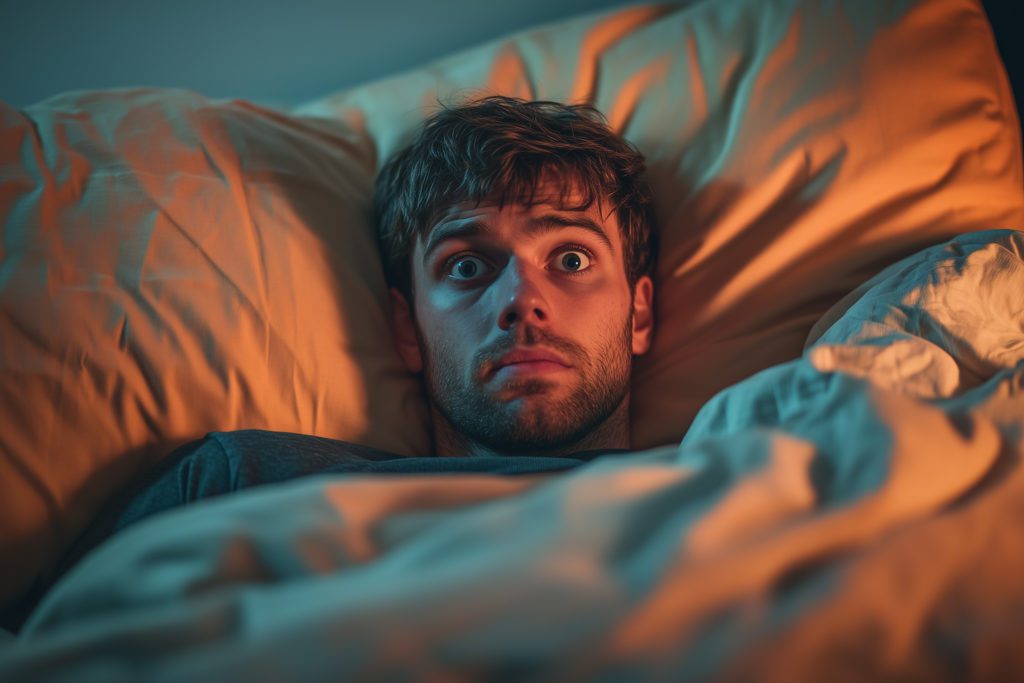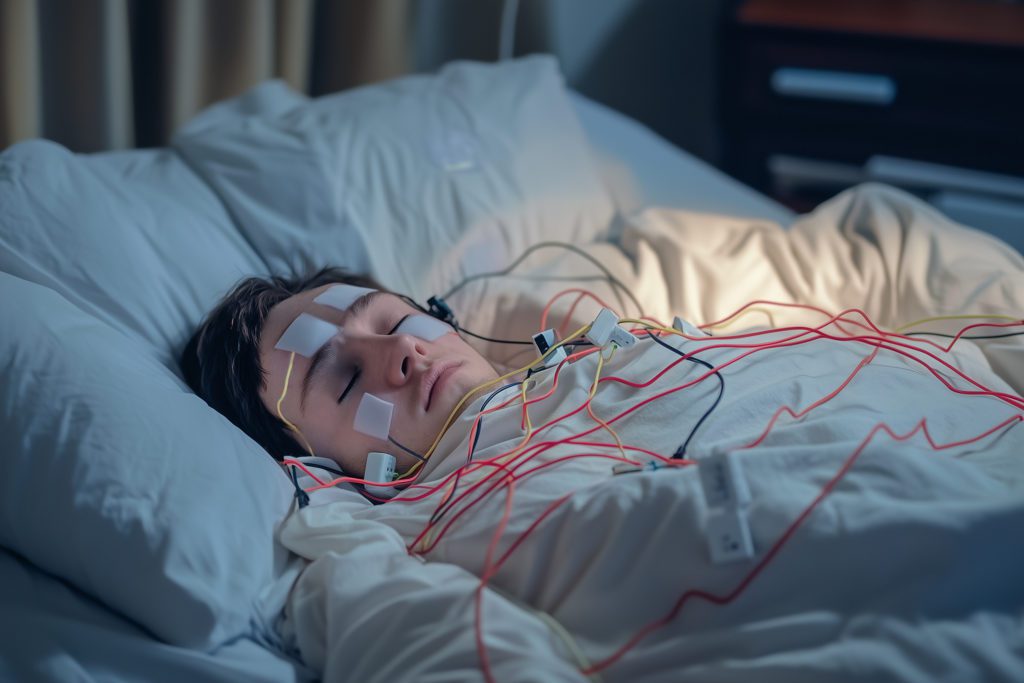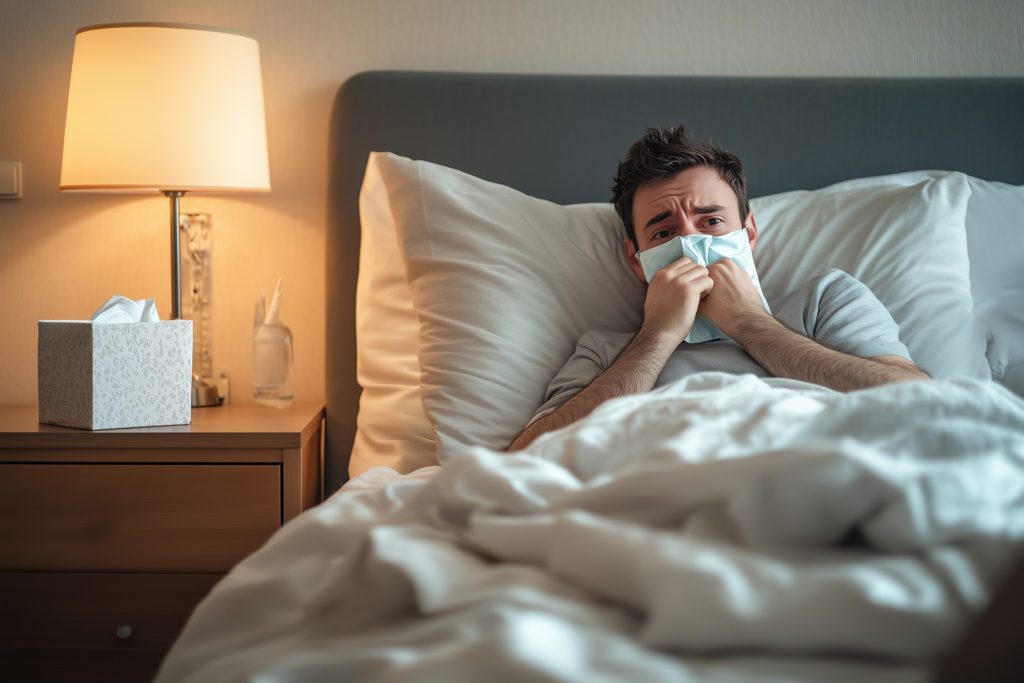
Understanding the Connection Between Sleep Disorders and Dementia Risk
Explore the link between common sleep disorders and your risk of dementia. From insomnia to sleep apnea, learn how to protect your overall health.

If you have a sleep disorder, you know how hard it can be to feel rested or even sleep the whole night. However, many people are unaware that many sleep disorders actually have distinct connections to an increased risk of dementia. By uncovering the truth behind what sleep disorders are connected to dementia and how big of a risk there is, you can take steps to protect your health and encourage better sleep, too.
In this article, we'll explore five sleep disorders that are connected to dementia and increase the risk of developing it. From insomnia to excessive daytime sleepiness, you'll learn just what connections exist and maybe even a little bit about how you can prevent dementia by supporting better sleep health in the long term.
Insomnia and Dementia
Many people struggle with insomnia or the inability to get adequate sleep at night. Studies have shown that this common sleep disorder actually has a significant connection to dementia and the increased risk of developing this over time. As found by researchers in 2016, insomnia was associated with an increased risk of developing dementia in the future (Source: PubMed). If you’re not sure why, there’s a simple answer.
Sleep is a necessary part of our rest and recovery every single day, thus, a lack of sleep as a result of insomnia can actually harm the brain. Because the brain’s inability to process memories and to perform other essential functions regularly can lead to dementia, which is ultimately a degrading of memory within the brain. If you struggle with insomnia, treating your symptoms and finding ways to support your sleep health is essential.
Sleep Apnea and Dementia
Aside from insomnia, another common sleep disorder that has been repeatedly associated with dementia is sleep apnea. Fortunately, sleep apnea is not connected with all dementia types, but only a few. One research study discovered that those who have sleep apnea present "a significantly increased risk of dementia," but this is specific to Alzheimer's disease and Parkinson's rather than vascular dementia (Source: PubMed).
If you find yourself struggling with sleep apnea, getting help for your symptoms can reduce your likelihood of developing these dementia disorders in the future. You can discuss options with your doctor and find ways to mitigate these symptoms to support your overall health as well as your sleep health. However, sleep apnea is not the only condition that is connected to Parkinson’s disease.
REM Sleep Behavior Disorder (RBD) and Dementia
REM Sleep Behavior Disorder (RBD) can be a challenging situation to deal with because it can completely disrupt your sleep and cause abnormal behaviors while you sleep. If you have been diagnosed with this condition, then you ought to know that REM Sleep Behavior Disorder reportedly is a clear sign of the potential for Parkinson’s disease to develop in your body. Even more so than that, it has also been tied to dementia with Lewy bodies.
Dementia with Lewy bodies is defined as changes to your sleep, behavior, movement, cognition, and also your automatic bodily functions. You may not have memory loss, but you’ll begin to notice that you lose cognitive function over specific basic tasks. Because of the transformative power of sleep, finding ways to curb the symptoms of RBD can actually improve your chances of limiting the potential for dementia in your later years.
Restless Leg Syndrome (RLS) and Dementia
For those who struggle with Restless Leg Syndrome (RLS), there have also been reported connections between this condition and dementia, as well as other neurodegenerative conditions you could develop in your later years. One study with over 2,500 subjects showed that those with RLS actually had an increased risk of all-cause dementia. This was especially true for older adults who had presented cognitive decline, or rather the inability to mentally perform specific tasks as they used to when they were younger.
This is not to say that people with RLS will all be potentially at risk of dementia, but those who present cognitive decline. So, if you're worried about this and you have a present diagnosis of RLS, focus on building your mental strength and tackling your symptoms. You'll not only feel better, but you'll reduce the likelihood of dementia being a diagnosis for you later in life.
Sleep Disturbances as a Whole and Dementia
Even if you have not been diagnosed with any sleep disorder, there is an overwhelming amount of evidence that suggests that sleep disturbances of any kind can increase your likelihood of dementia. Sleep disturbances like sleep-disordered breathing and nonspecific sleep problems can actually be a potential risk factor for all-cause dementia and even Alzheimer’s (Source: PubMed).
If you struggle with sleep once in a blue moon, then you shouldn't be worried about your risk for dementia as related to sleep disorders. Now, if you have a terrible sleep more than 50% of the time, it might be worth something to think about—not only to ensure you don't have a more significant sleep disorder but that your sleep disturbances do not cause you further harm. Either rate, if you struggle with sleep disturbances in general, you’re likely increasing your risk of dementia in the future.
Protect Your Health and Your Sleep
With sleep disorders being so tied to dementia, you may be worried about your future health. Fortunately, since you’ve already read this and you know the risks, you can take steps now to protect your future health. Whether you focus on improving your sleep or take additional measures outside of these recommendations to support your overall health, every step you take is a step in the right direction.
We hope that this article has enlightened you about the connection between sleep disorders and dementia. What steps will you take to improve your sleep health—and overall health outcomes—today?

Written by
Marie Soukup
Marie Soukup is a seasoned copywriter, editor, and Integrative Nutrition Health Coach with a certificate from the Institute of Integrative Nutrition (IIN). With years of experience working with brands across diverse industries, Marie is passionate about holistic health and crafting compelling content.
Download Pillow
Get help
Press & News
Legal
Connect
X (Twitter)
Company
Copyright © Neybox Digital Ltd.



